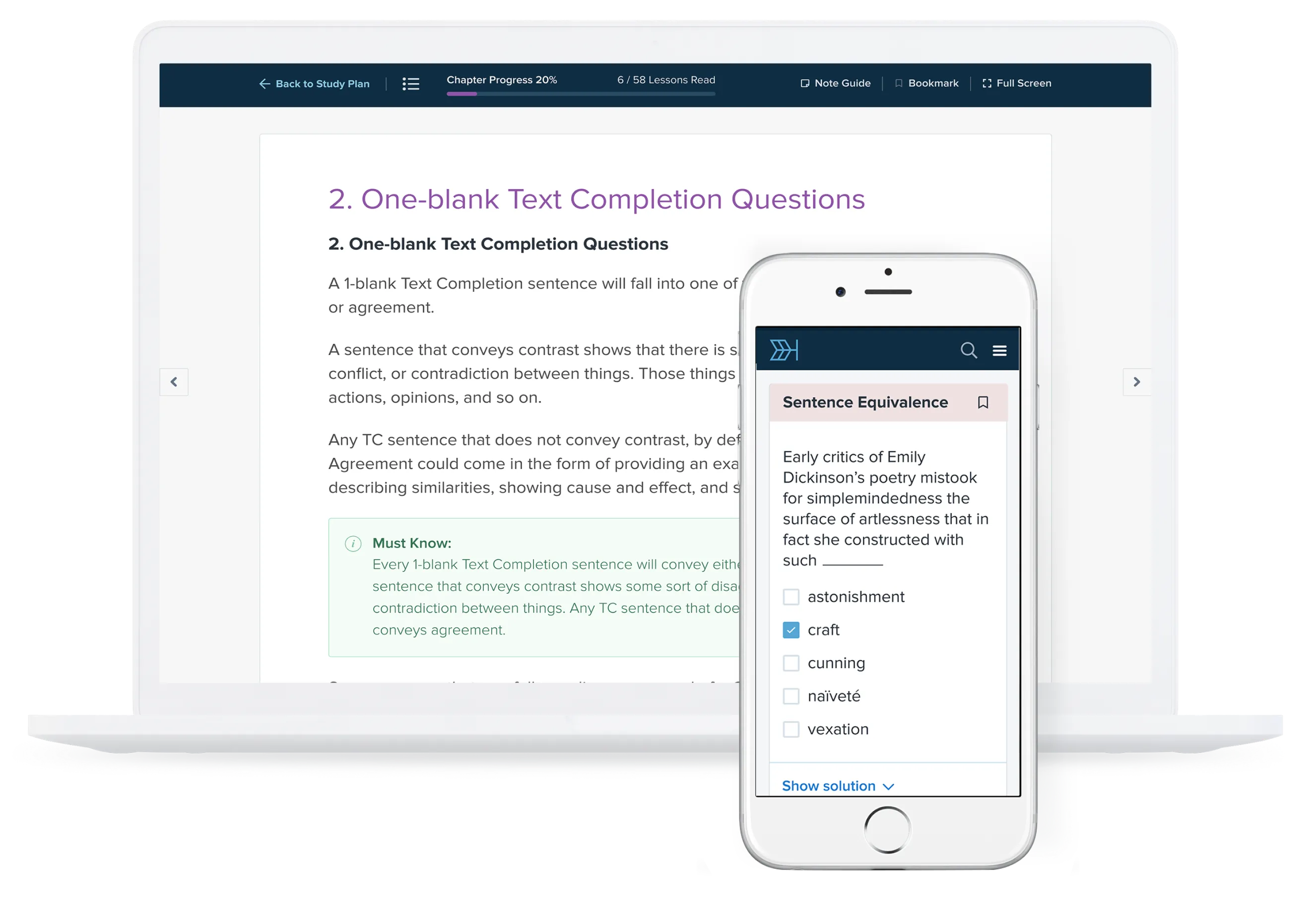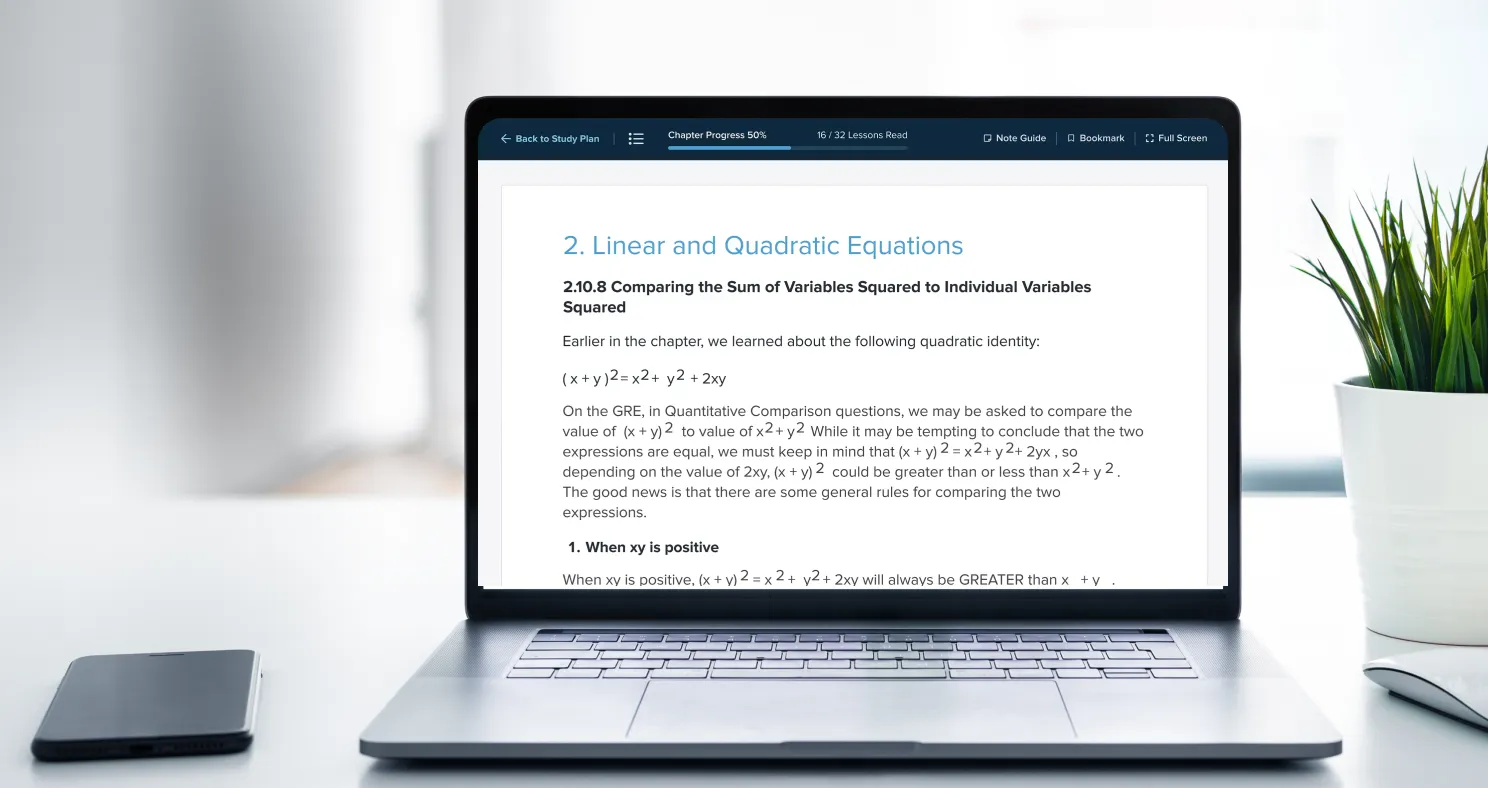Question
For each blank select one entry from the corresponding column of choices. Fill all blanks in the way that best completes the text.
In seeking to reintroduce (i)__________ into computer searches, the new algorithm prioritizes chance results instead of (ii)__________ ones.
Blank (i)
Blank (ii)
 Scott Woodbury-Stewart
Founder and Expert GRE Instructor
Scott Woodbury-Stewart
Founder and Expert GRE Instructor

Text Solution:
After reading through the question stem, we identify the agreement signal “in doing X, Y.” So, we know that the two halves of the sentence agree with each other.
However, we also see the contrast signal “instead of” preceding blank (ii). So, while the two halves of the sentence will be in keeping with each other overall, there is a contrast within the second half: blank (ii) contrasts with “the new algorithm prioritizes chance results,” which is the known information in the sentence.
We could solve the blanks in either order, but given that blank (ii) is part of a contrasting pair with the known information, starting there is probably the most efficient route.
So, we’re looking for a word that contrasts with prioritizing “chance results.” Thus, we can quickly eliminate “happenstance” (chance, coincidence) as the opposite of what we need, since there is no discernible difference between “chance results” and “happenstance ones.”
We should then immediately notice “predetermined,” which is an antonym of “happenstance.” This choice makes sense in context, as “chance results” and “predetermined ones” are opposites.
“Realistic” is off-topic. After all, we have no reason to believe that “chance results” are any less realistic than “realistic ones.” Perhaps “chance results” are more realistic. We simply can’t say, because “realistic” has an unclear relationship to whether something is happening by chance or not by chance.
Choice (F) is correct for blank (ii). Let’s reexamine the full context with this additional information:
In seeking to reintroduce (i) __________ into computer searches, the new algorithm prioritizes chance results instead of predetermined ones.
For blank (i), we need a word that agrees with prioritizing “chance results instead of predetermined ones,” so reintroducing “patterns” is the opposite of what we need.
Between “serendipity” (happy chance) and “harmony,” “serendipity” is the choice that directly connects to “chance results.” “Harmony” does not clearly connect to whether something happens by chance or not by chance. Choice (A) is correct for blank (i).
Let’s double-check our work:
In seeking to reintroduce serendipity into computer searches, the new algorithm prioritizes chance results instead of predetermined ones.
The sentence meaning is logical. “Reintroduce serendipity” agrees with “prioritizes chance results,” which contrasts with “predetermined.”
serendipity
/predetermined









